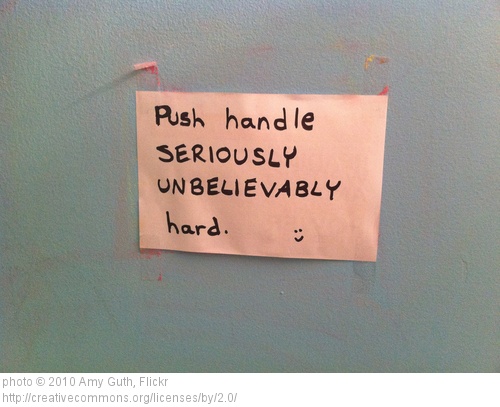
Day two on the road and we’re looking at about 600 miles before we arrive. It’s still early in the morning. Maile’s listening to a book on tape, and I’ve been reading Nadia Bolz-Weber’s book Pastrix. The sun is just starting to creep up over the tree-lined highway here in South Carolina, and all the shadows are long and slant hard to our right.
The approaching New Year has me inevitably contemplating resolutions. I love any opportunity for a fresh start, a clean slate, and during the week between Christmas and New Year’s I usually find myself trying to decide how I’m going to improve my life next year. What will I change about myself? What will I start doing? What will I stop?
This year a new thought hit me. Why are all of my New Year’s resolutions centered around being more productive? What if, instead of making resolutions that reflect the judgment I feel towards the areas of myself that I perceive as lacking, I made resolutions full of grace and kindness?
“Essential to the work of reconciliation is a nonjudgmental presence. We are not sent to the world to judge, to condemn, to evaluate, to classify, or to label. When we walk around as if we have to make up our mind about people and tell them what is wrong with them and how they should change, we will only create more division.”
– Henri Nouwen
To illustrate the difference, let me first tell you what I would normally resolve after a year like this one: 1) Exercise daily, because I’m obviously turning into a slob 2) Stop eating sugar, because my teeth are rotting and I’m on my way to diabetes 3) Read my Bible every day because God will love me more and things will go my way. Rules, rules, rules, and probably the reason my New Year’s resolutions rarely last through the first week of the new year.
So what would a kinder, more grace-filled resolutions list look like? Well, I’ve been thinking that I should allow myself some time to read during the day – that seems like a huge luxury, but it’s something I love to do, and it would help my writing. So grace-filled resolution #1 is to allow myself the freedom to read for one hour during the day.
Another resolution I’d like to suggest to myself for this coming year would be to set aside some time (I’m still sure how much or when) where I allow myself to be completely unproductive. I grew up in a culture that stigmatizes laziness to the point where people are sometimes scared to admit that they relax. Because this is so deeply ingrained in my psyche, I know I need to work hard to eliminate that kind of legalistic attitude towards work from my life.
Finally, I have a deep desire to be less judgmental. Why do I feel I have to classify every person I meet, every experience that I have, into these categories of good and bad, right and wrong, Christian and unChristian? What purpose does it serve me or anyone else? I want to work even harder this year at judging less.
“Matthew once said to me, after one of my more finely worded rants about stupid people who have the wrong opinions, ‘Nadia, the thing that sucks is that every time we draw a line between us and others, Jesus is always on the other side of it.’”
– Nadia Bolz-Weber, Pastrix
Do you usually make New Year’s resolutions? Are they binding or freeing?

Lovely. Truly lovely.
Thanks, Wanda.
I’m not big on resolutions, the cynic in me feels like they are simply premeditated failures, but, something I’ve been feeling the invitation to lately is the word, “open.” I imagine, as I explore it a bit more, I’ll find that this also has to do something with moving away from judgement. I often judge to find relief from uncertainty – if I can draw neat lines, things always become a little clearer, but usually there’s a lot of error involved and a false belief that I actually know/control a lot more than I do. So, I’m learning to listen a little more to the invitation to “open” myself to people and situations that seem unclear. I don’t have to know everything to participate in life and in closing myself off I miss not only the negative, but possible good as well.
There, now I’ve written a mini blog post in your comments. Classic. :)
For the record, I love your mini-blog-post-length comments.
In preparing for a sermon series on resolutions, this perspective on resolve motivated by grace rather than judgment will stay with me. Thanks.
This is great. I’ve been thinking the same thing. It seems that being kind to myself, not judging myself, would also spill over into my relationships with others. A win-win all around.
Yes. I think we can only love others as well as we love ourselves.